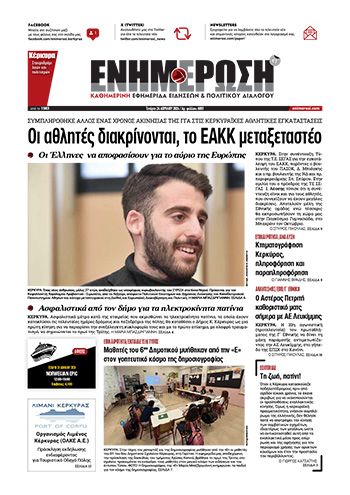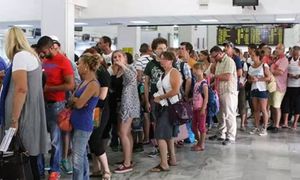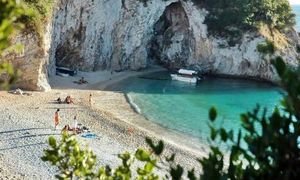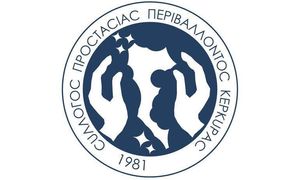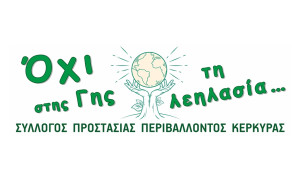Central Corfu Municipality becomes member of Global Sustainable Tourism Council (GSTC)
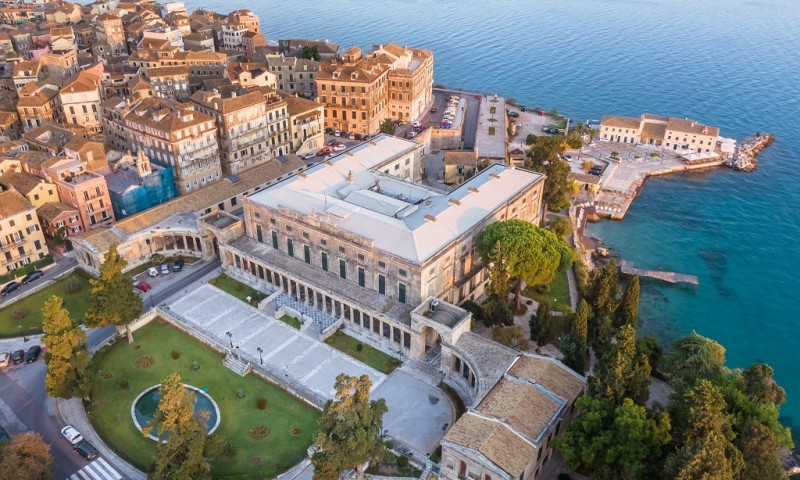
sustainable tourism
03 Ιουλίου 2021
/ 10:32
CORFU. First Greek Municipality to become member and second worldwide after Dubrovnik.
Central Corfu & Diapontia Islands Municipality has become a member of the Global Sustainable Tourism Council (GSTC) - the first Greek Municipality and second worldwide following Dubrovnik (2018-2019).
The announcement of the Greek island’s membership follows the Greek island’s destination assessment by the GSTC, which started in December 2020 and lasted for five months. During that time, city leaders of Corfu worked together with GSTC and the Cruise Lines International Association (CLIA) to assess their sustainability status and to map out a plan for a future of sustainable tourism.
The destination assessments of Corfu, co-funded with CLIA and conducted by the GSTC, aimed to provide benchmark data, and find ways for balanced development of tourism in the locality. The assessment process began in December 2020 and involved three phases across a period of six months – an initial preparatory phase of research and data compilation, a second phase of on-site assessment with stakeholder engagement, and a final phase of analysis and report.
The GSTC Destination Assessment focuses on four main categories of destination sustainability: destination management and governance; economic benefits to local communities; protection of cultural heritage, community, and visitor well-being; environmental protection and conservation.
The aim is to provide reference data and to develop methods for the balanced development of tourism on the island via a road map for sustainable tourism in Corfu which will be the strategy base for the next ten years.
The Global Sustainable Tourism Council (GSTC)
GSTC was established in 2010 on the initiative of 32 global organisations dedicated to sustainable development, the GSTC conducts destination assessments and helps local authorities explore ways for balanced development of tourism in their localities. These are based on specific criteria, which are separated in two categories: Destination Criteria for the drawing up of policy and the management of tourist destinations and Criteria for Hotels and Travel Agents.
The announcement of the Greek island’s membership follows the Greek island’s destination assessment by the GSTC, which started in December 2020 and lasted for five months. During that time, city leaders of Corfu worked together with GSTC and the Cruise Lines International Association (CLIA) to assess their sustainability status and to map out a plan for a future of sustainable tourism.
The destination assessments of Corfu, co-funded with CLIA and conducted by the GSTC, aimed to provide benchmark data, and find ways for balanced development of tourism in the locality. The assessment process began in December 2020 and involved three phases across a period of six months – an initial preparatory phase of research and data compilation, a second phase of on-site assessment with stakeholder engagement, and a final phase of analysis and report.
The GSTC Destination Assessment focuses on four main categories of destination sustainability: destination management and governance; economic benefits to local communities; protection of cultural heritage, community, and visitor well-being; environmental protection and conservation.
The aim is to provide reference data and to develop methods for the balanced development of tourism on the island via a road map for sustainable tourism in Corfu which will be the strategy base for the next ten years.
The Global Sustainable Tourism Council (GSTC)
GSTC was established in 2010 on the initiative of 32 global organisations dedicated to sustainable development, the GSTC conducts destination assessments and helps local authorities explore ways for balanced development of tourism in their localities. These are based on specific criteria, which are separated in two categories: Destination Criteria for the drawing up of policy and the management of tourist destinations and Criteria for Hotels and Travel Agents.



